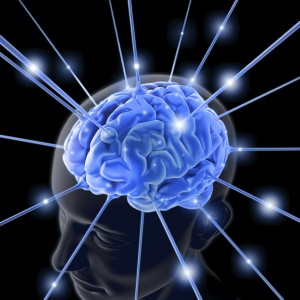Physio Health Advice > The Relationship Between Pain and Your Brain
For someone suffering from pain, to be told “It’s all in your head” can be a frustrating experience. What many people don’t understand is that pain is a complex process and the mind plays a role in the perception of pain for everyone.
All pain, no matter the cause, must be recognized by the brain and processed for you to be aware of it. Pain is actually an important part of human survival, letting you know which activities are dangerous and encouraging you to rest and in many cases to protect damaged tissue. When the body loses the ability to perceive pain, this can lead to further injury and even death.
There is a famous condition where people don’t feel any pain at all, known as “congenital analgesia”. This is actually a very dangerous condition and these people are at risk of dying young. They have no warning system letting them know that they need to seek treatment. It can be hard to get your head around the idea that pain helps you survive, but it really is an important strategy of our bodies to keep us protected.
Pain isn’t always associated with tissue damage.
Even though pain is an important part of human survival, sometimes things go wrong. A famous example of this is phantom limb pain, where amputees continue to have severe pain, sometimes for decades after the limb has been removed.
Sometimes pain can even be felt on the injured side when looking at a mirror image of their uninjured limb moving.
The amount of attention you give to pain and how you feel about it will also change how severely you experience that pain.
Have you ever noticed a bruise and couldn’t remember how you got it? That is an experience of tissue damage without much pain. On the flip side, if you have suffered recent emotional trauma or are grieving you might find a small injury very difficult to deal with. Some people believe the best way to deal with pain is to ignore it and push through with all activities. Other people believe that the best treatment for all pain is to rest and stop all activities.
What you believe about pain and how you react to it can have a big effect on how your brain interprets pain signals. Feeling in control of your pain is also very important. For people who are experiencing pain for long periods of time without any way to reduce symptoms this can be very distressing, particularly if this pain is impacting their ability to participate in activities.
Your physiotherapist is trained to help you deal with pain in the best way possible. This may involve counselling and education about how to deal with your pain and not just physical treatment of your injury. Don’t hesitate to ask us more next time you come in.


